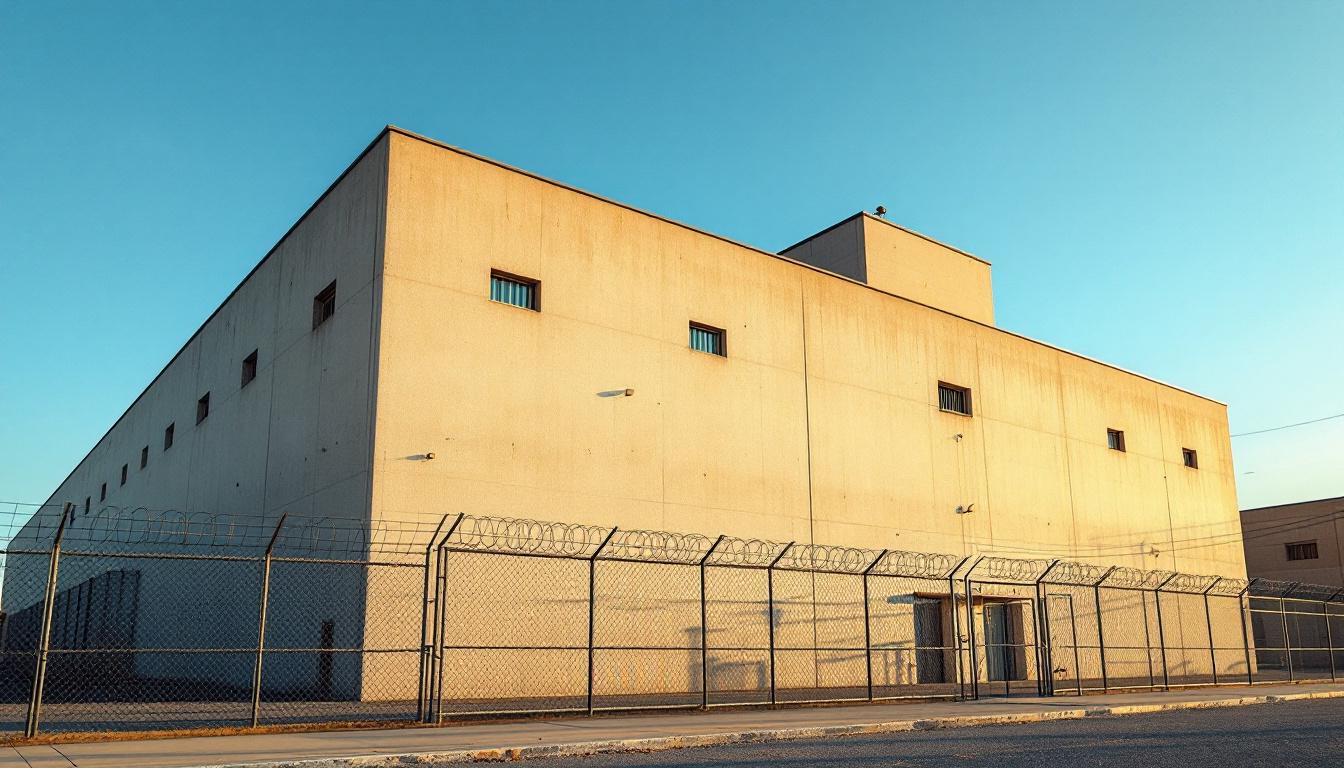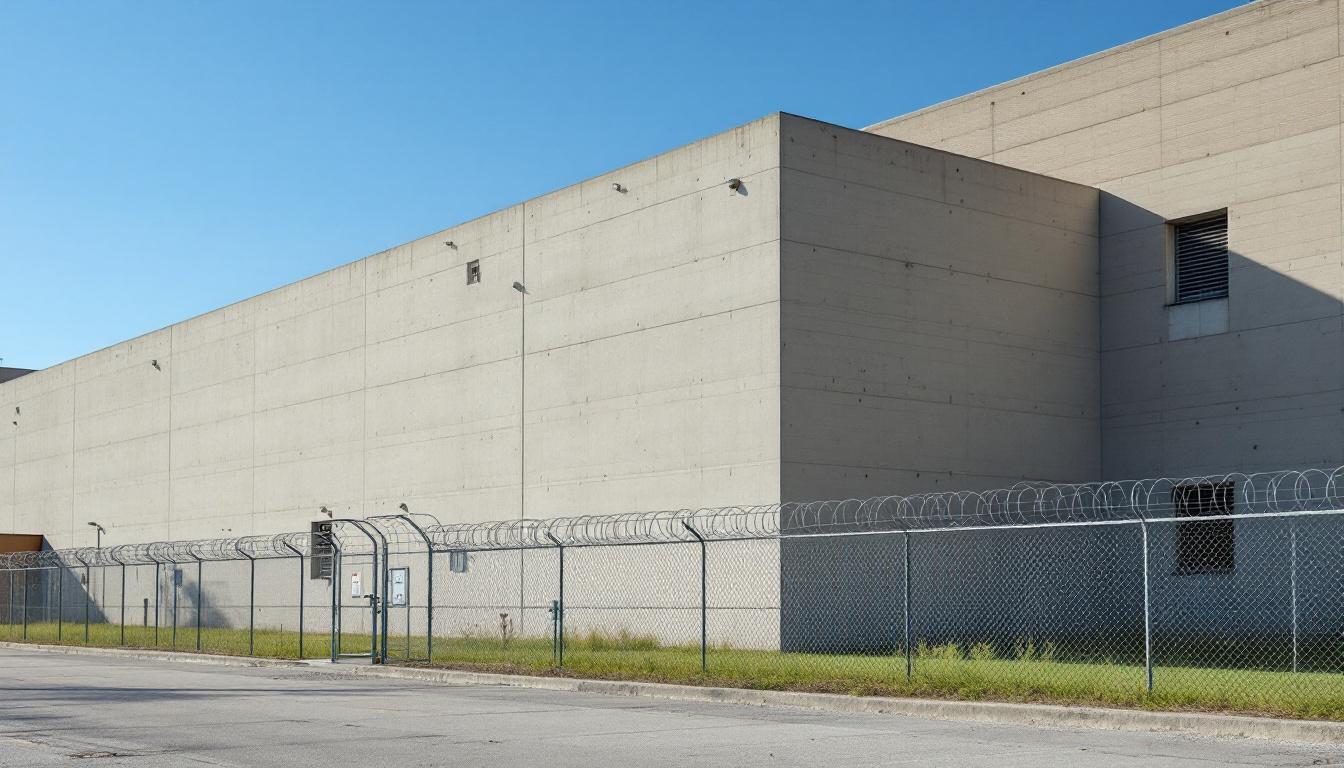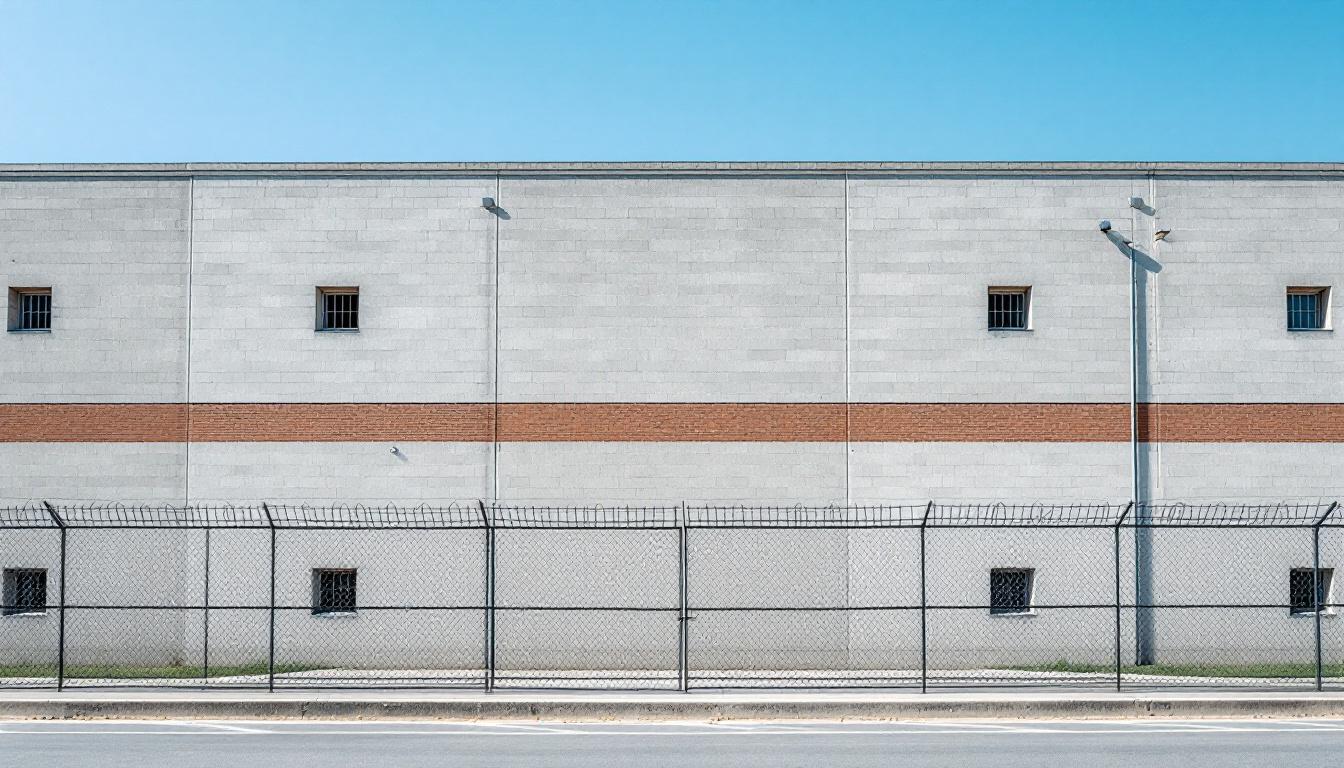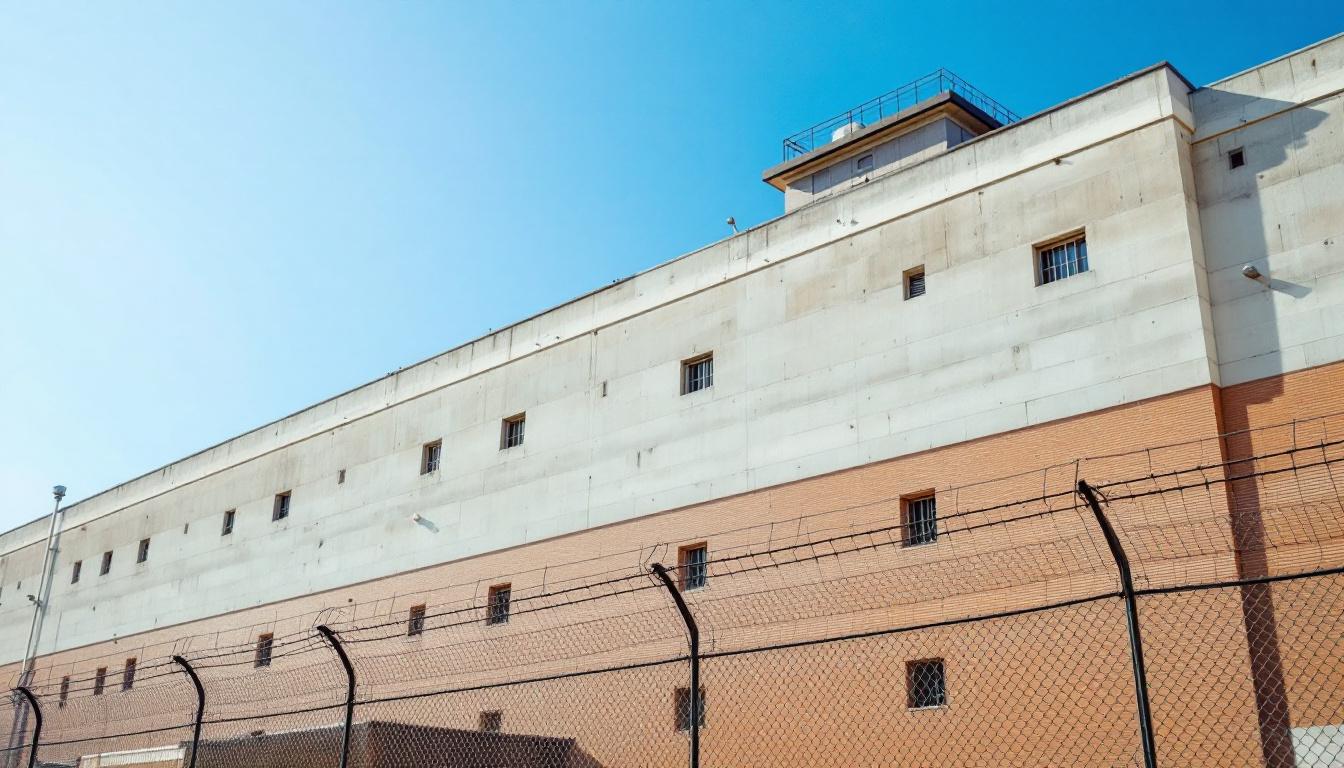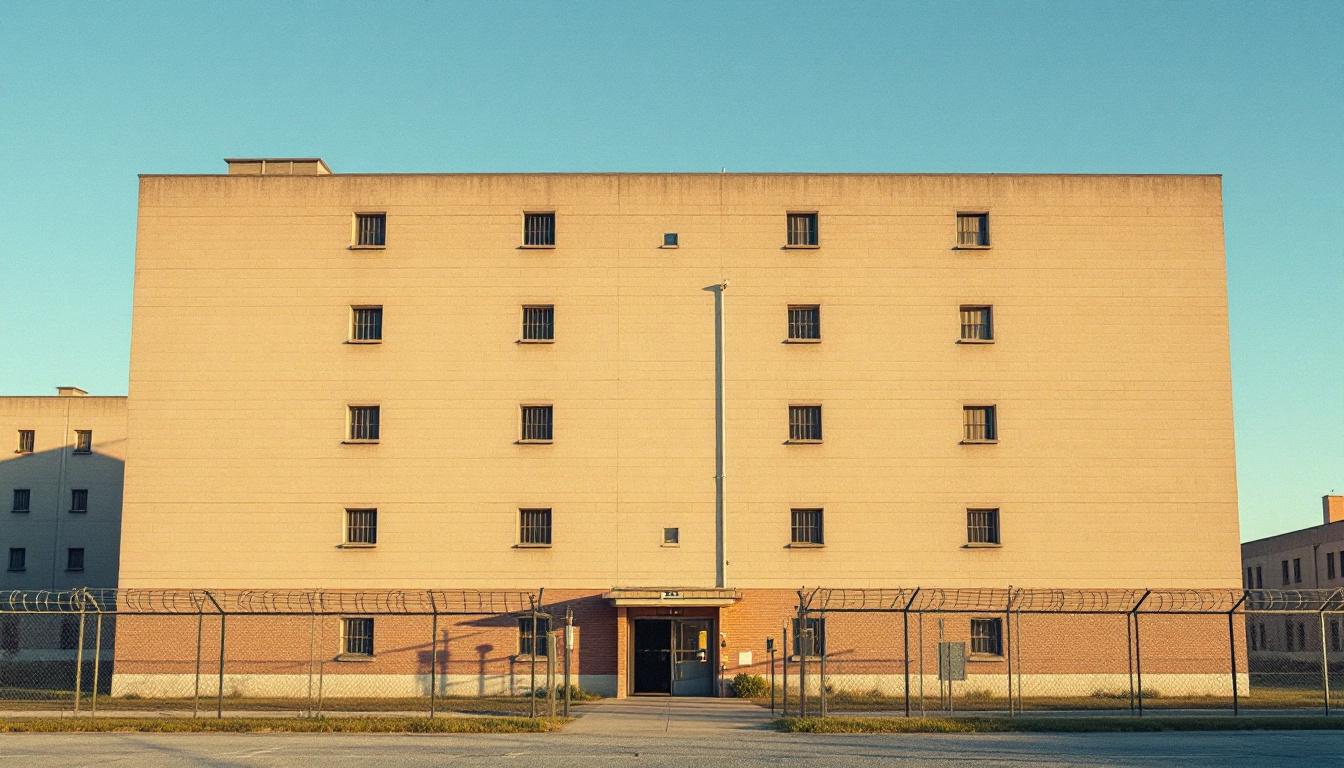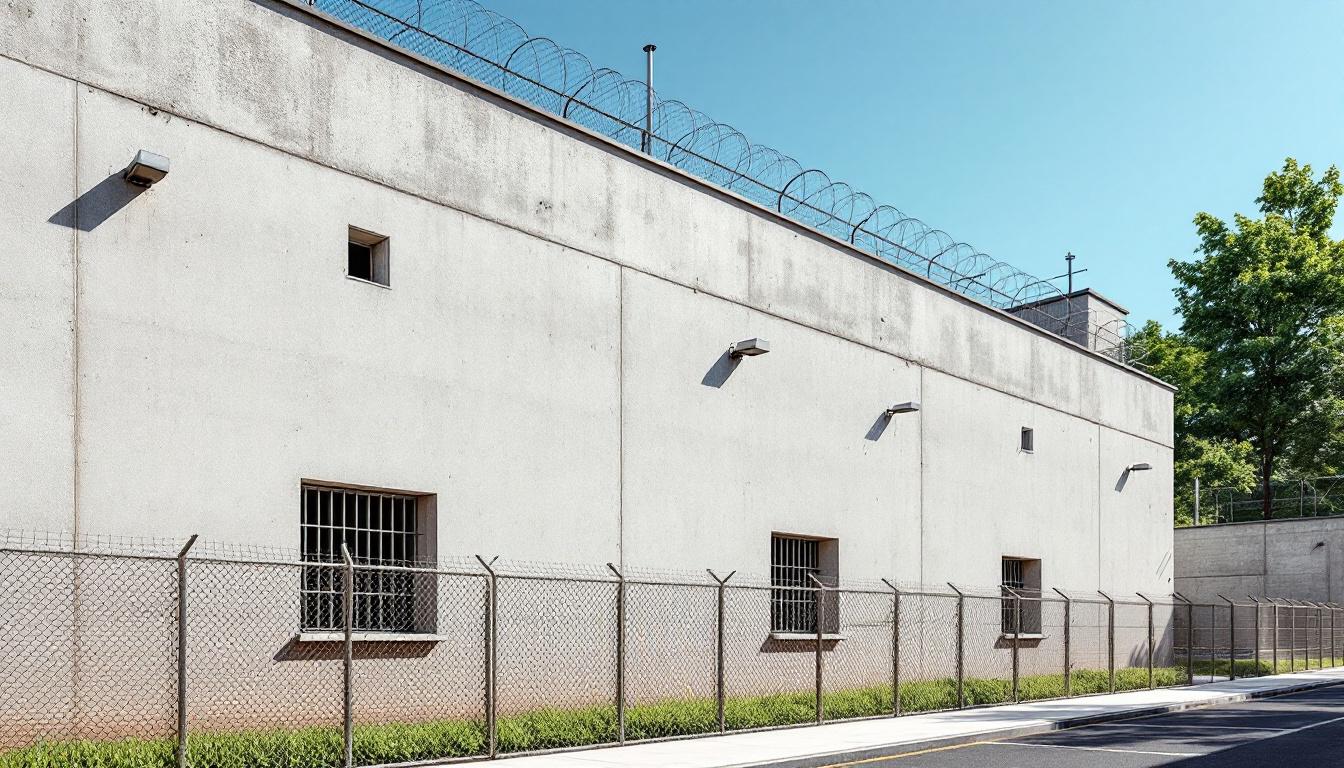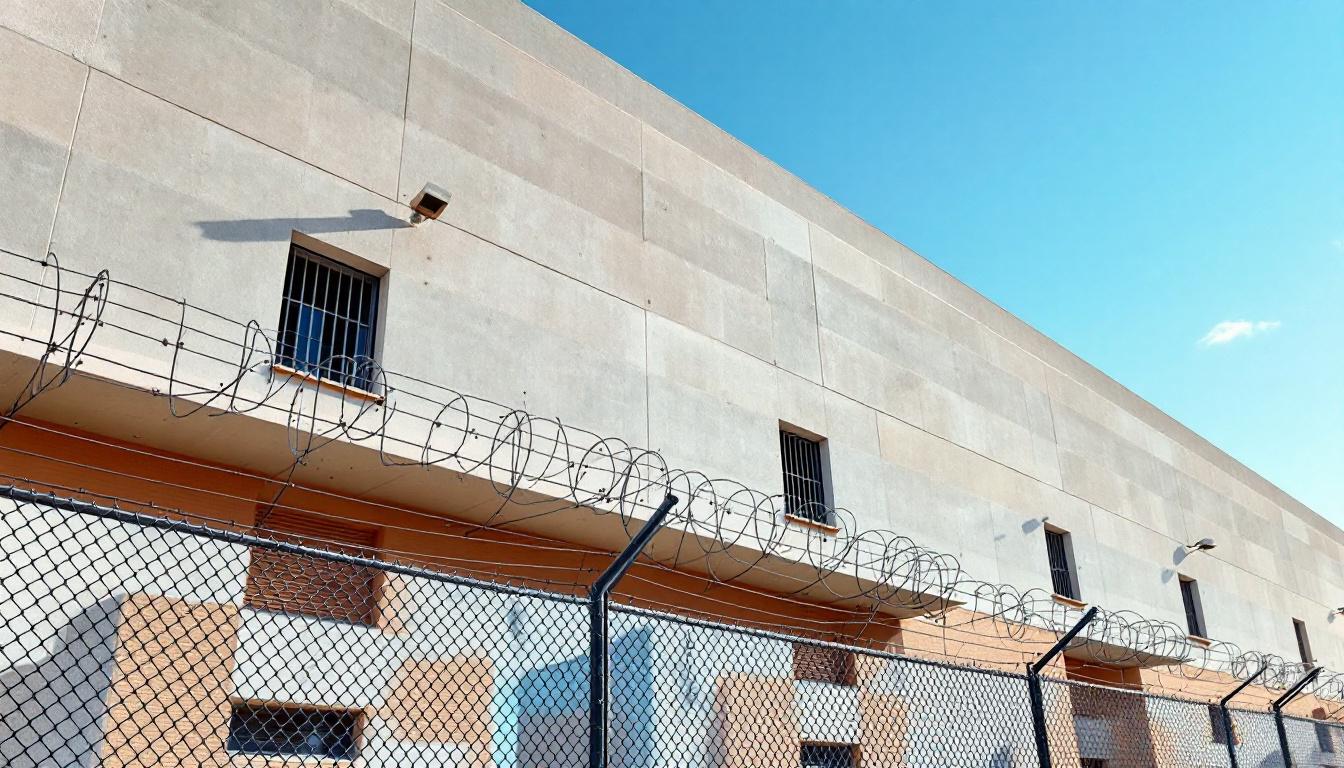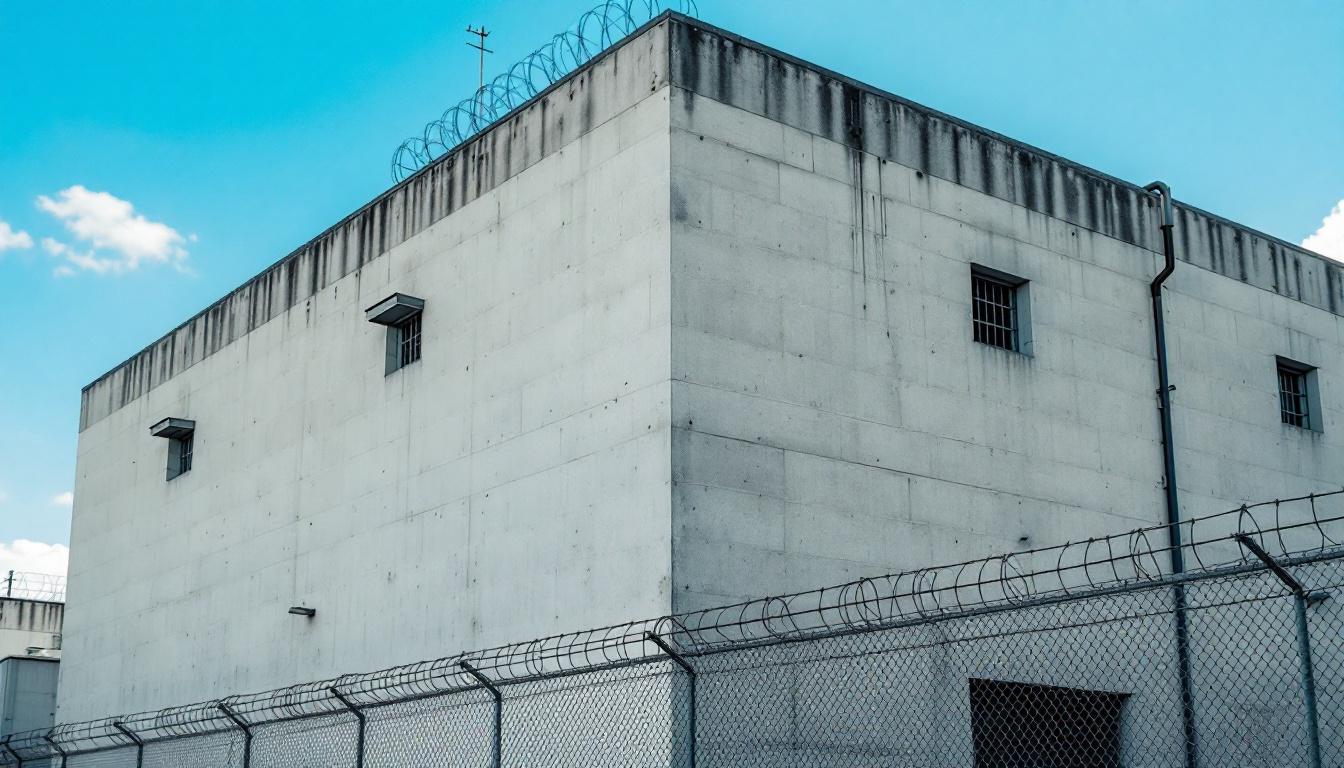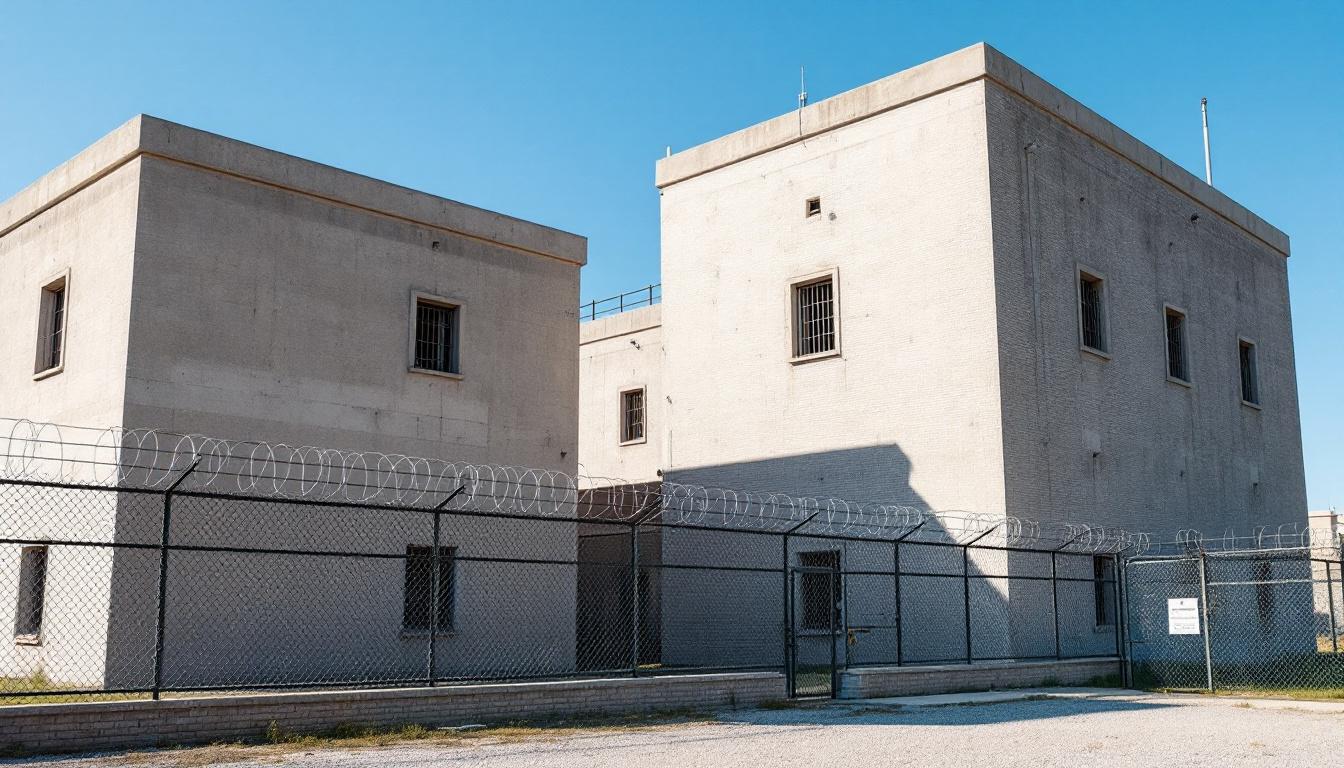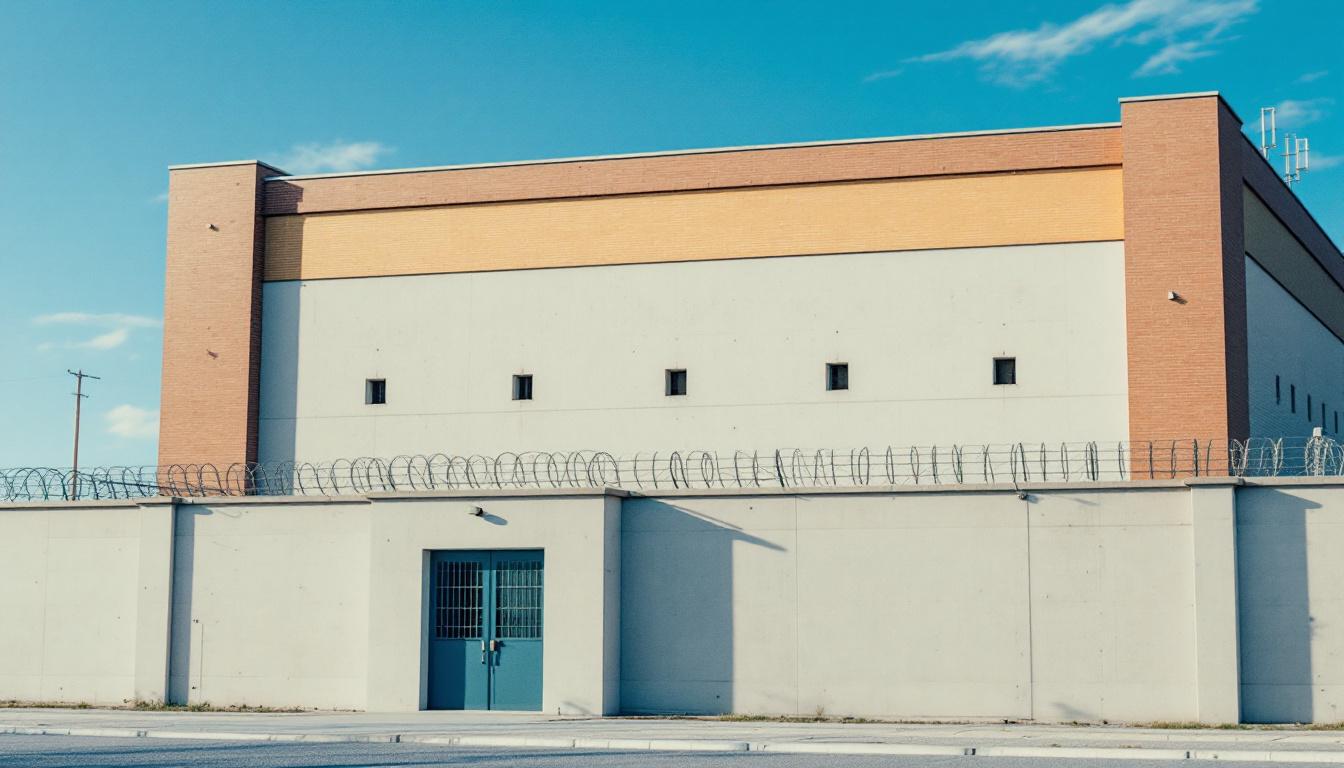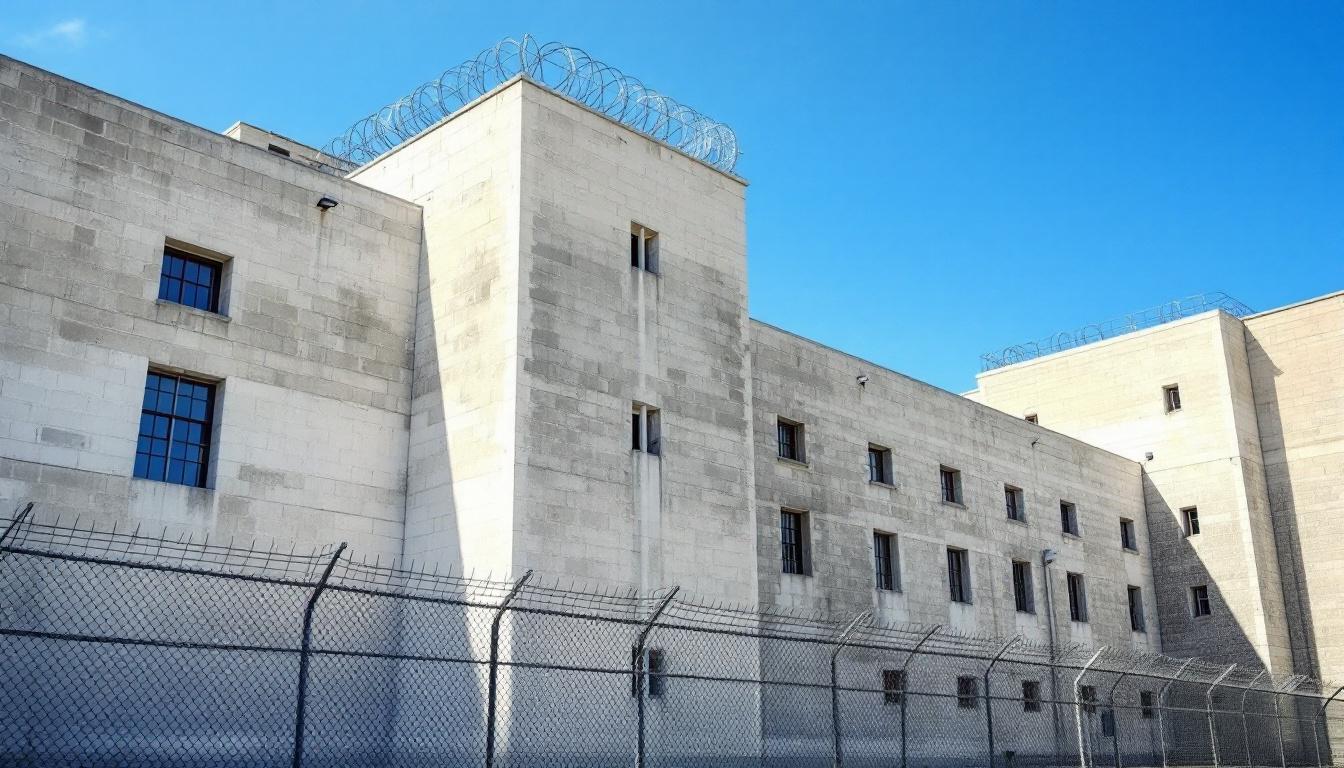
Quick Navigation
How to contact an inmate at Casa Grande Transitional Housing Center
This comprehensive guide will walk you through how to connect with an inmate at Casa Grande Transitional Housing Center. Follow the steps below to find an inmate and send letters and photos:
- Search for the inmate using our search tool below
- Create your account or log in to Penmate
- Write your message (up to 6,000 characters)
- Send instantly - inmates receive printed copies daily
Find an Inmate
Search for an inmate to start communicating today
Tip: You can search by first name, last name, or inmate ID number
To contact a person at Casa Grande Transitional Housing Center start by searching for the person on the official facility website. Perform a search by following these steps:
- Step 1: Enter their first name and last name into the search form and click "Search"
- Step 2: Locate their inmate record
- Step 3: Write down their Inmate ID and any housing information provided
Important! Be sure to enter the person's full name. Nicknames should not be used.
How to Send Messages to Inmates

You can use your phone or computer to send emails, letters, and photos to an inmate. Messages are sent electronically to inmate tablets or kiosks at the facility. If you would like to send a message, start by searching for an inmate at Casa Grande Transitional Housing Center.
Sending Photos and Postcards

A great way to send love and support to a loved one at Casa Grande Transitional Housing Center is to send photos and postcards. It only takes a few minutes to send photos from your phone and it makes a huge difference. You can also mail postcards with words of support and inspiration, or design your own postcard for special moments like birthdays and holidays.
Important! Be sure not to send any explicit photos or they may not be approved by the facility. You can also use a photo printing app like Penmate to make sure your photos are printed at the correct size (4x6 or 3x5) and are mailed according to the rules and regulations of Casa Grande Transitional Housing Center.
Frequently asked questions about Casa Grande Transitional Housing Center
-
How long does it take to deliver a message?
If you're sending an email message your letter is usually delivered within 24-48 hours. For messages sent via mail you should expect delivery within 3-7 days. All messages will need be approved by Casa Grande Transitional Housing Center.
-
How much does it cost to send a message to Casa Grande Transitional Housing Center?
You can send a message free using your phone or mail a message via USPS for the price of a $0.60 stamp and envelope. You can also purchase credits or e-stamps from services starting at $1.99.
-
What services can I use to contact an inmate at Casa Grande Transitional Housing Center?
Penmate
You can use Penmate to send letters and photos to an inmate from your phone. It's an easy way to stay in touch during your loved one's incarceration. Use the inmate locator to find an inmate's location and contact information, then you can send messages within a few minutes.
Securus messaging
Securus may be another option for communicating with an inmate at Casa Grande Transitional Housing Center. You can create a friends and family account and purchase credits to send messages. All messages will be reviewed and must be approved by the facility.
JPay
Some county jails and state prisons may support sending messages with JPay. You must register an account with the system, find your loved one, and purchase stamps to send messages. For some locations you can also attach photos.
Smart Jail Mail
You may also check if Smart Jail Mail is available at Casa Grande Transitional Housing Center. Smart Jail Mail is operated by Smart Communications and has contracted with some state and county jails. After purchasing credits, your messages and photos are sent to the facility, printed out, and then handed out to your loved one.
-
What is the mailing address of Casa Grande Transitional Housing Center?
Mailing address:
Casa Grande Transitional Housing Center
3955 W Russell Rd
Las Vegas, NV 89118
-
What are the visiting hours at Casa Grande Transitional Housing Center?
Visiting hours at Casa Grande Transitional Housing Center vary by housing unit and security level. Generally, visits are scheduled on weekends and holidays, with some facilities offering weekday visits. Contact the facility directly for the current visiting schedule. Visits typically last 30-60 minutes and must be scheduled in advance.
-
What items are prohibited when sending mail to Casa Grande Transitional Housing Center?
Prohibited items typically include: cash, personal checks, stamps, stickers, glitter, glue, tape, staples, paperclips, polaroid photos, musical or blank greeting cards, hardcover books, magazines with staples, and any items containing metal or electronics. Only send letters on plain white paper with blue or black ink. Photos must be printed on regular photo paper (no Polaroids). Always check with Casa Grande Transitional Housing Center for their specific mail policies.
-
How do I send money to an inmate at Casa Grande Transitional Housing Center?
You can send money to an inmate at Casa Grande Transitional Housing Center through several methods: 1) Online using JPay, Access Corrections, or the facility's approved vendor, 2) Money orders mailed directly to the facility with the inmate's name and ID number, 3) Kiosks located in the facility lobby, or 4) Over the phone using a credit or debit card. Fees vary by method, typically ranging from $2.95 to $11.95 per transaction.
-
Can I schedule a video visit with an inmate at Casa Grande Transitional Housing Center?
Many facilities now offer video visitation as an alternative to in-person visits. At Casa Grande Transitional Housing Center, video visits may be available through services like Penmate, Securus Video Connect, GTL, or ICSolutions. Video visits typically cost $10-20 for 20-30 minutes and must be scheduled in advance. You'll need a computer or smartphone with a camera and reliable internet connection. Contact the facility for their specific video visitation policies and approved vendors.
-
What identification do I need to visit an inmate at Casa Grande Transitional Housing Center?
All visitors must present valid government-issued photo identification such as a driver's license, state ID, passport, or military ID. Minors must be accompanied by a parent or legal guardian who can provide the minor's birth certificate. Some facilities require visitors to be on the inmate's approved visitation list, which may require a background check. Contact Casa Grande Transitional Housing Center for specific ID requirements and visitor approval procedures.
-
How can I find out an inmate's release date?
To find an inmate's release date at Casa Grande Transitional Housing Center, you can: 1) Use the online inmate search tool if available, 2) Call the facility's records department, 3) Contact the inmate's case manager or counselor, or 4) Have the inmate provide this information during a call or visit. For privacy reasons, some facilities only release this information to immediate family members.
Facility Overview
Contact Information
Casa Grande Transitional Housing Center3955 W Russell Rd
Las Vegas, NV 89118
Official Website
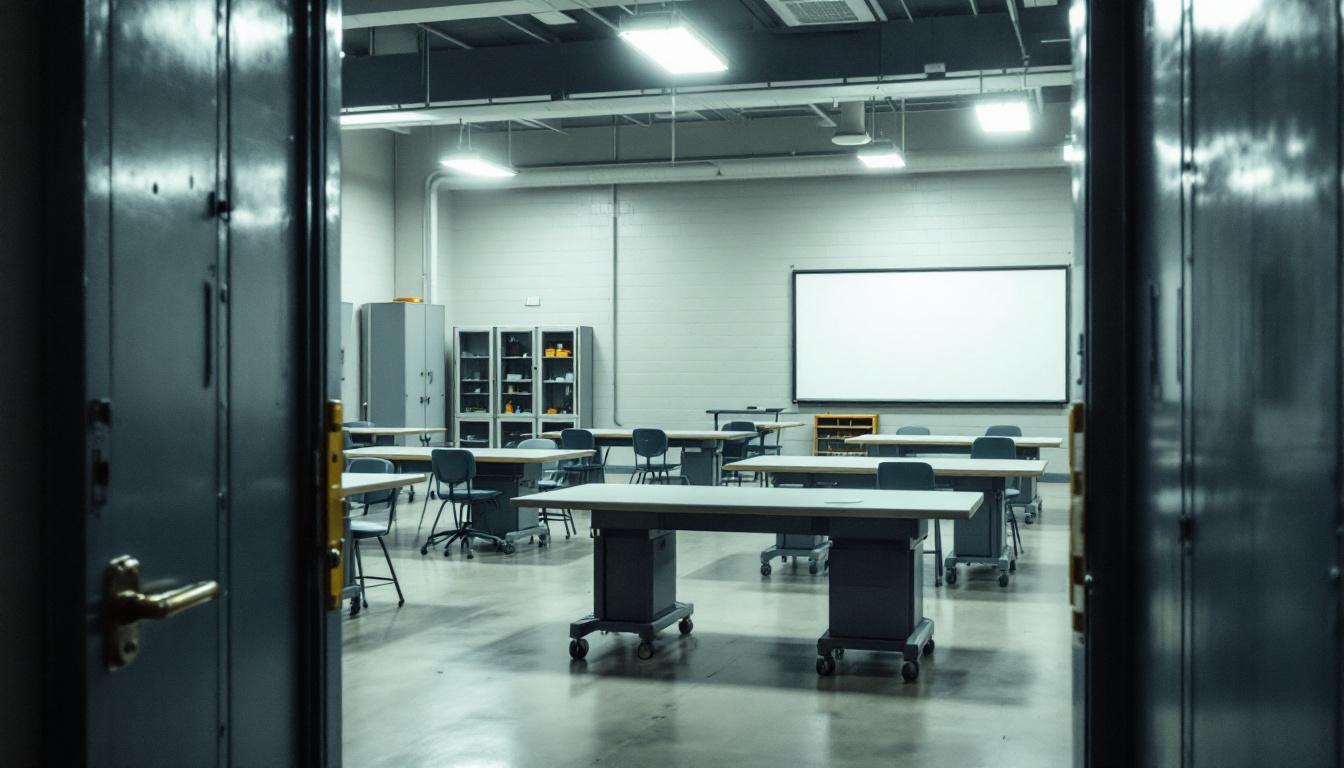
About Casa Grande Transitional Housing Center
Nestled within Nevada's expansive mountain region, Las Vegas serves as the operational base for Casa Grande Transitional Housing, a correctional facility that functions as a critical component in the state's graduated reentry framework. The facility's positioning within Nevada's correctional system reflects the state's approach to managing the transition process for residents preparing to reintegrate into community settings. Through its structured environment, Casa Grande Transitional Housing typically facilitates the methodical progression from more restrictive correctional settings toward eventual community placement, serving residents who may benefit from intermediate supervision and support services.
The facility's operational framework generally emphasizes skill development and behavioral modification programs designed to address the multifaceted challenges residents often encounter during the reentry process. Educational components may include basic literacy instruction, vocational training opportunities, and life skills development sessions that focus on practical applications for community living. Rehabilitation services often encompass substance abuse counseling, mental health support, and case management assistance, with programming typically structured to accommodate varying levels of resident participation and engagement.
As part of Nevada's broader correctional infrastructure, Casa Grande Transitional Housing contributes to the state's systematic approach to reducing recidivism through graduated supervision models. The facility's role within this framework involves providing residents with structured support while they navigate the complex process of community reintegration, often including assistance with employment preparation, housing placement planning, and family reunification efforts when appropriate to individual circumstances.
Programs & Services
Comprehensive rehabilitation initiatives at Casa Grande Transitional Housing center on empowering residents through skill development and personal growth opportunities. The facility's approach typically emphasizes practical learning experiences that prepare individuals for successful community reintegration. These initiatives often include structured programming designed to address multiple aspects of residents' transition needs while building essential life skills.
Educational services form a cornerstone of the facility's offerings, providing residents with opportunities to advance their academic credentials and professional qualifications. Vocational programs may deliver hands-on training in practical trades, with painting and decorating initiatives often serving as particularly valuable skill-building opportunities. These educational components typically prepare residents for employment prospects while fostering confidence and technical competency. Furthermore, the structured learning environment often includes individualized assessment to match residents with appropriate skill development pathways.
Support services and therapeutic initiatives address the comprehensive needs of residents during their transition period. Substance abuse treatment programs may offer counseling and recovery support tailored to individual circumstances and challenges. Family reunification services typically focus on rebuilding healthy relationships and communication patterns with loved ones. Additionally, grounds maintenance initiatives often provide residents with meaningful work experience while contributing to facility operations, creating a sense of purpose and responsibility that supports successful reintegration into the community.
Daily Life & Visitation
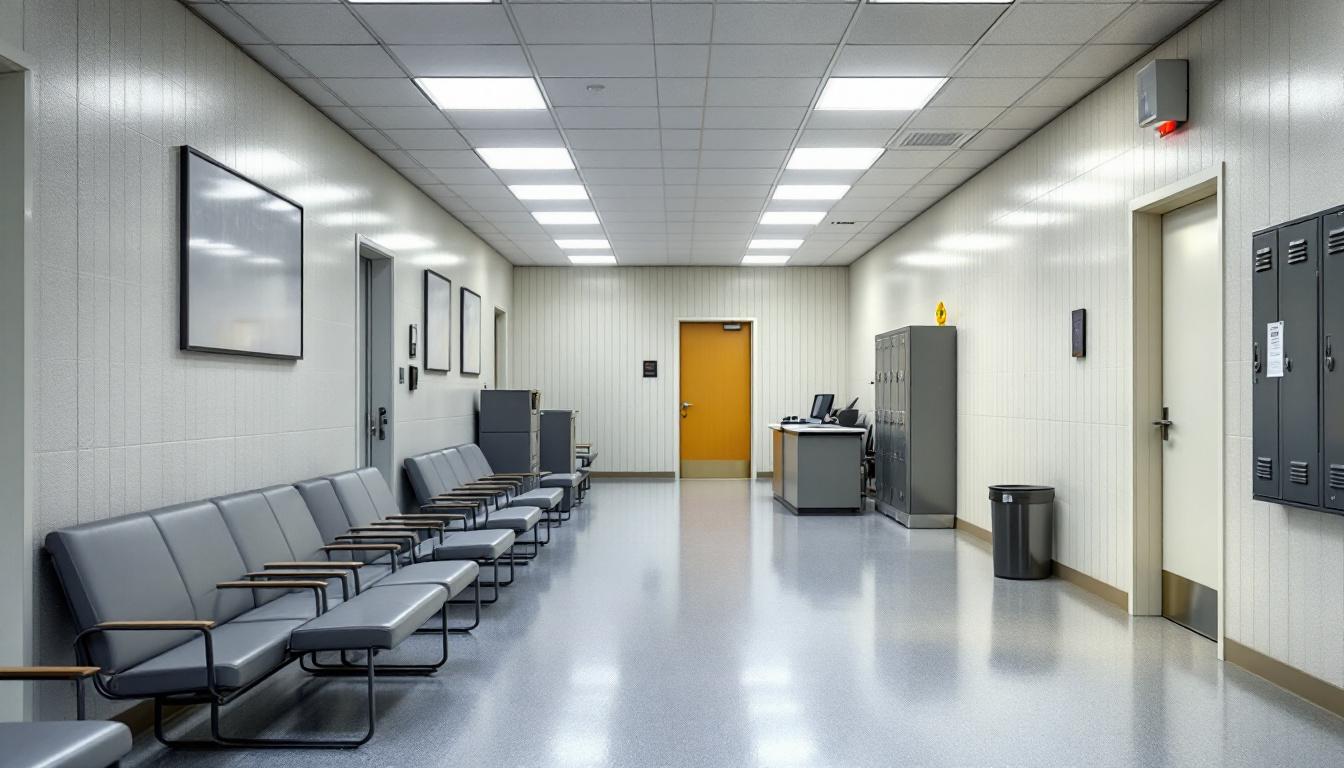
Structure forms the foundation of recovery at present, as residents at Casa Grande Transitional Housing actively participate in carefully planned daily routines designed to rebuild stability and accountability. Wake-up calls typically occur in the early morning hours, followed by mandatory room inspections and personal hygiene time. Residents generally attend scheduled programming sessions, work assignments, and educational activities throughout the day. These structured activities deliver consistent expectations that help individuals transition back into community life.
Living accommodations typically feature shared dormitory-style housing units with multiple residents per room. Residents usually maintain responsibility for keeping their living spaces clean and organized according to facility standards. Personal property allowances generally include basic clothing, hygiene items, and limited personal effects stored in designated areas. Furthermore, meals are typically served at scheduled times in communal dining areas, with residents often participating in food service duties as part of their work assignments. The commissary may offer additional food items and personal care products for purchase.
Programming schedules usually include substance abuse counseling, life skills training, and job readiness preparation delivered through structured group sessions. Recreation opportunities typically involve organized physical activities, television viewing during designated hours, and outdoor exercise periods when weather permits. Although visitation policies may vary, family members can generally maintain contact through scheduled visits and monitored phone calls. Work assignments often include facility maintenance, kitchen duties, and grounds keeping that provide residents with practical experience while contributing to daily operations.
Ready to Connect?
Start communicating with your loved one today
Search for an Inmate
